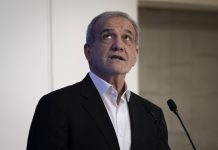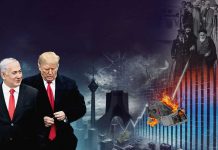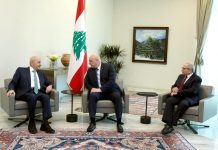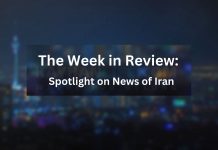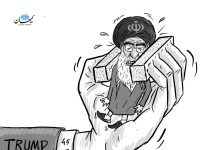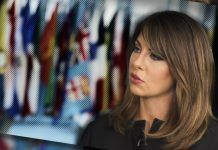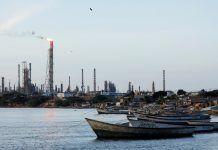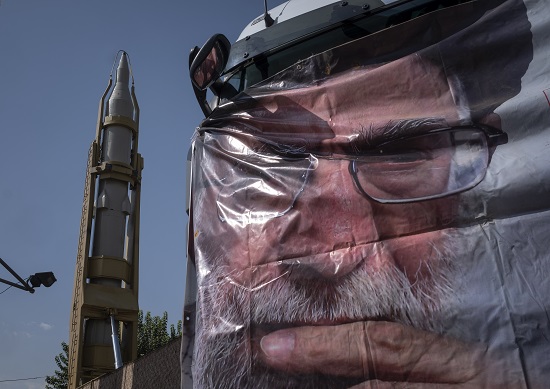
By Dr. Mehrdad Khonsari
[Dr. Mehrdad Khonsari, a former Iranian diplomat, is a Senior Consultant at the Iranian Center for Policy Studies: www.icps.uk.]
On Friday February 7, 2025, Iran’s Supreme Leader Ali Khamenei firmly rejected the idea of negotiations with the United States, appearing to pour cold water on gestures by prominent figures in his own government towards dialogue and negotiation with the US to reach an acceptable modus operandi over the state of Iran’s nuclear program.
Khameniei’s comments came after U.S. President Donald Trump reinstated his so-called ‘maximum pressure policy’ on Iran, and at the same time, suggested that he was willing to engage with Iran’s “moderate President,” Masoud Pezeshkian.
On the surface, Khamenei’s harsh rejection of talks with the new US administration – which he described as being “neither wise nor intelligent nor honorable” – contrasted sharply with the vibes projected by senior members of the current Islamic Republic government, including close confidants such as Javad and Ali Larijani, former Foreign Minister Kamal Kharazzi, Supreme National Security Council Head Ali Akbar Ahmadian, President Pezeshkian, as well as Vice-President Javad Zarif and Foreign Minister Abbas Araghchi.
Any final decision on issues of foreign policy in the Islamic Republic has always rested with the Supreme Leader. Yet Khamenei’s words this time – especially given his regime’s disastrous setbacks in the Middle East, and the deteriorating economic and social crisis at home – may have been more tactical in nature. Most of all, they may have been an attempt to exhibit some spunk before having to make inevitable concessions: if some kind of outright military confrontation with either the US or Israel is to be avoided.
How this game is played out will ultimately show whether Khamenei, as some analysts believe, is a die-hard, uncompromising revolutionary who never deviates from his professed doctrinal beliefs, or – more likely, and as believed by many other Iran watchers in recent years – is a shrewd pragmatist whose instincts for his own survival and that of his regime, irrespective of any interim manoeuverings, inevitably lead him to avoid a confrontation which he knows he cannot win.
Recent history, as witnessed by the late Ayatollah Ruhollah Khomeini’s crucial reversal in 1988 (as he metaphorically drank the ‘jug of poison’ when forced to accept a ceasefire in the Iran-Iraq War) and by Khamenei himself (when he labelled his retreat in the discussions leading up to the JCPOA agreement as “heroic flexibility” in 2015) has clearly shown that when faced with a ‘crisis of survival,’ all ideological stances and propaganda slogans of the fundamentalist theocracy – preaching the necessity for resistance, steadfastness, and especially ‘martyrdom for the cause,’ — fade away in the face of any serious existential threats and challenges.
If Trump’s insistence on seriously halting the advancement of the Islamic Republic’s alarming nuclear program (which Israel is also relentlessly working to counter) is more than just empty rhetoric and political grandstanding, it is highly likely that Khamenei, who has recently made a number of serious miscalculations, will seek a face-saving way to maintain his credibility among his own supporters. Under a deceptive cover, he may delegate critical decisions regarding the nuclear crisis to figures such as President Pezeshkian and his government and certain close associates whose loyalty and support are crucial for him. These individuals, who are themselves now highly engaged in assessing the threats posed to their own interests and future, may map out a way forward that avoids any military confrontation with Israel and the United States.
Undoubtedly, aside from pleasing a handful of radical sycophants in his immediate entourage, Khamenei’s futile and tiresome rhetoric and sloganeering has so far only widened the gap, not just between his regime and the disillusioned, defenseless, and exhausted masses of people, as well as with Iran’s broader civil society, but also within some conservative regime loyalists and the Pezeshkian government. These factions are now more worried than ever about the consequences of a devastating and futile military conflict, which could potentially pave the way for the regime’s total collapse.
In the coming weeks, we are likely to see whether Khamenei will ultimately choose between drinking the ‘jug of poison’ as did his predecessor or opt instead for ‘eternal martyrdom’ without any consideration for its catastrophic consequences for the Iranian nation.

